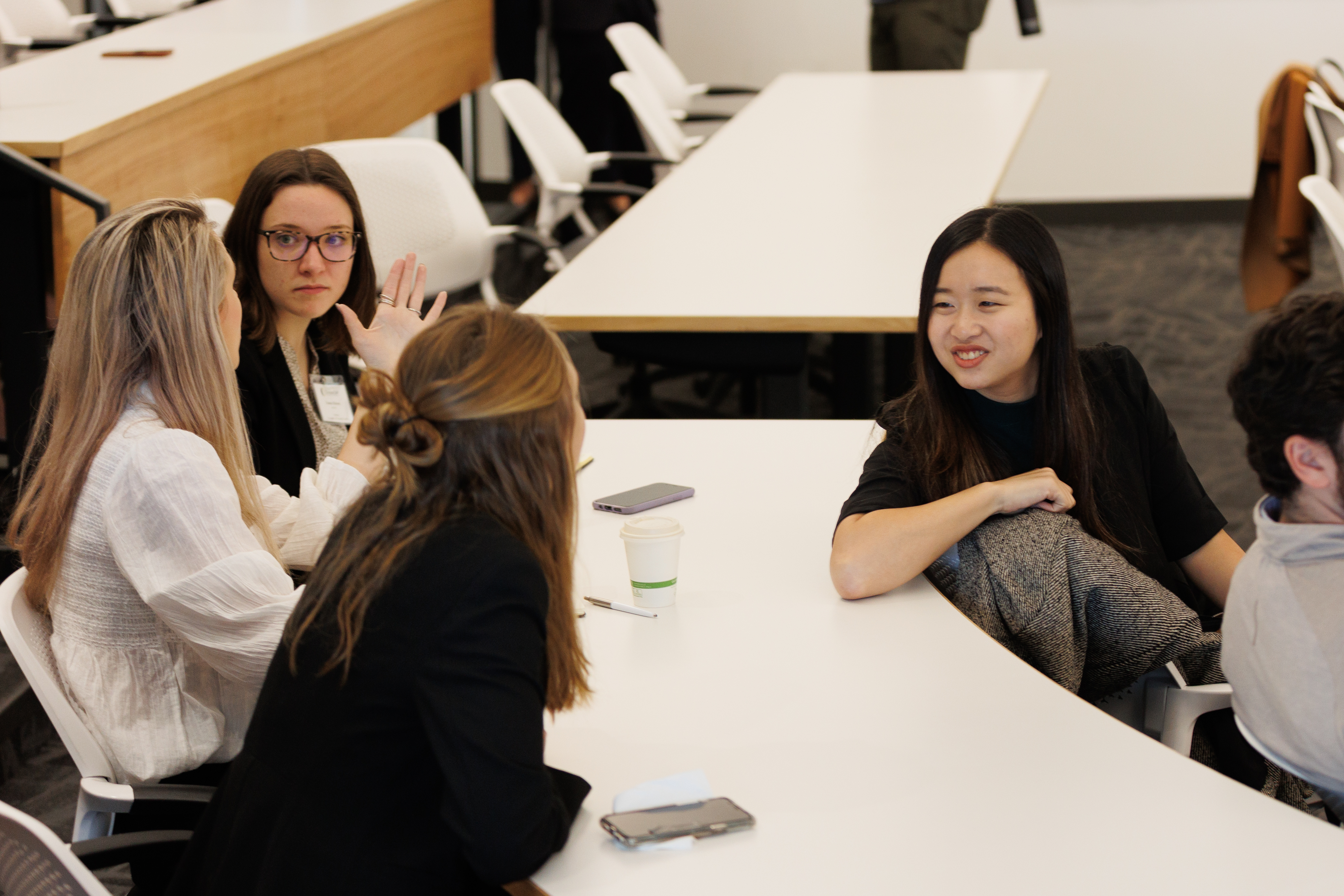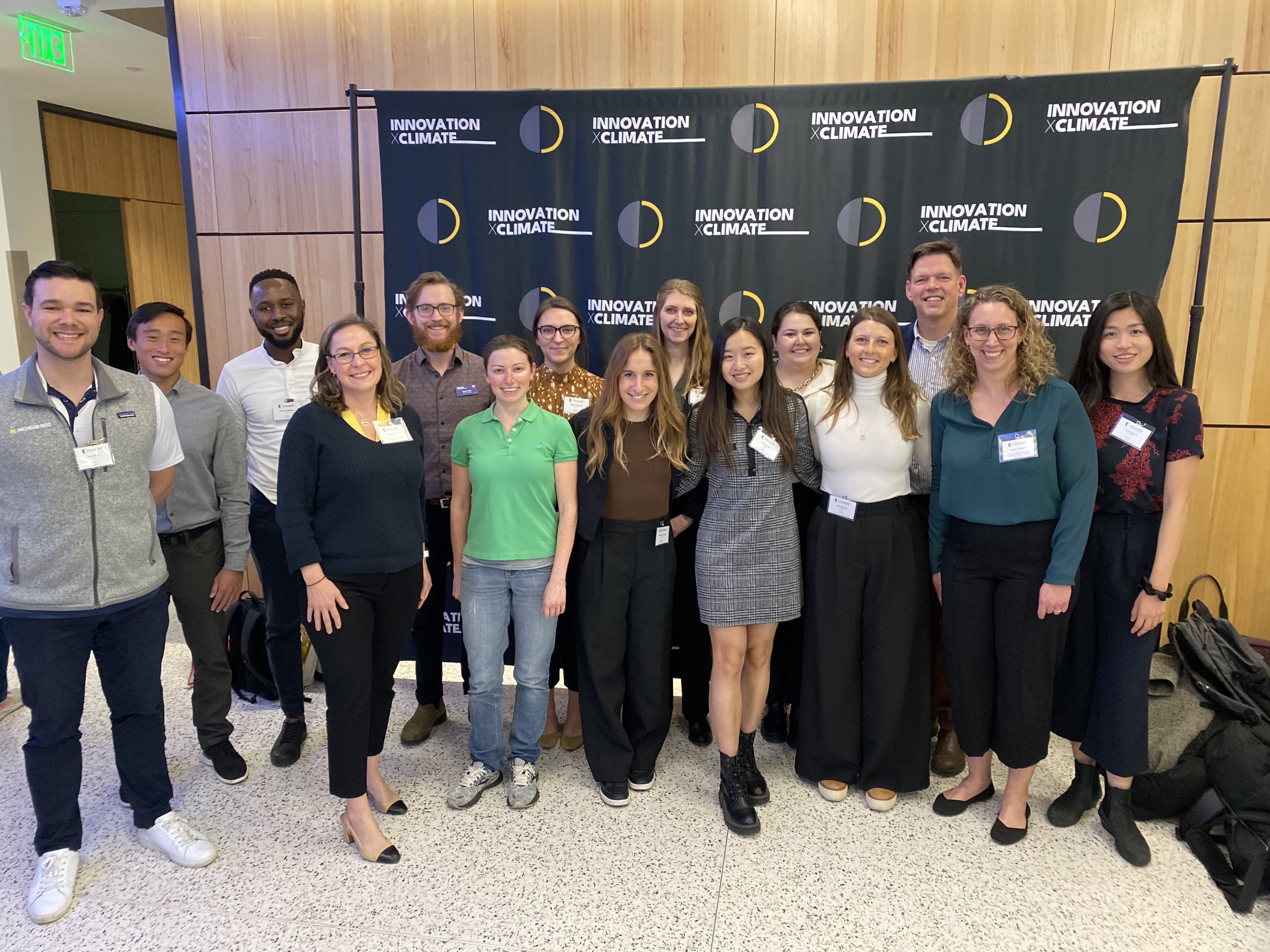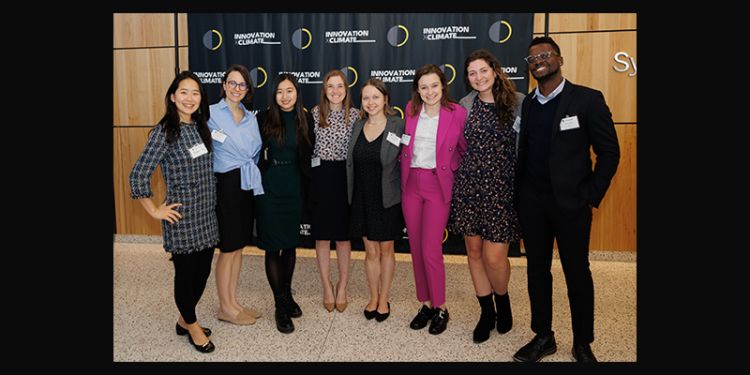In February 2023, students from top MBA programs across the country gathered in Austin, Texas at the McCombs School of Business for ClimateCAP, The Global MBA Summit on Climate, Capital, & Business. HBS sent a number of students to network with other MBAs and to learn more about climate innovations. The Summit featured speakers from companies such as Closed Loop Partners, NextEra Energy, Energy Impact Partners, Dow, United Airlines, KKR, BlackRock, Google, Walmart, KPMG, and others.
The interview below is a feature of one of the 2023 ClimateCAP Fellows, Grace Lam from HBS.
Tell us a little about your background and what your interest in climate-related issues is.
I am currently in my second year of the joint MBA/MPP program with HBS and HKS. I started my career as a generalist at McKinsey’s Hong Kong office and worked on a wide range of projects in different industries. Later, I stumbled across the Firm’s Sustainability Practice during my rotation in New York, and it was “love at first sight” – I realized that climate change has become top of mind for many business leaders, and climate-related projects cover some of the most impactful topics that can bring positive change to the world. Therefore, after my stint in New York, I went back to McKinsey’s Greater China office to help build their Sustainability Practice while deepening my climate knowledge along the way.
As a joint degree student, I am grateful for the opportunity to interact with climate professionals in both business and policy realms. Climate is a space where you need to lean into policies to shape incentives, which can, in turn, create incentives for new business models and growth opportunities. The IRA is a great example of how policy actions can catalyze private investments in the green economy.
Another benefit of being a joint degree student is the flexibility to complete two summer internships in different fields during the 3-year program. Last year, I interned at a climate VC fund called KawiSafi Ventures in Nairobi, Kenya. The fund invests in companies that increase energy access in East Africa, especially for communities that aren’t connected to the grid. I am always drawn to how developing and emerging markets can approach these challenges while fostering economic growth and leapfrogging their economy to a net-zero future. It was very exciting to be on the ground in Kenya and witness the innovative solutions that have sprung up in the region. This experience also inspired me to develop my own venture idea, which also becomes my project in the ClimateCAP Fellowship.
What inspired you to apply for the ClimateCAP Fellowship?
What excites me the most about the ClimateCAP Fellowship is its vision to connect MBA students from different schools who are passionate about climate. The application is open to all MBA students across the world, which is an attractive proposition as you don’t often get the chance to network with other MBA students outside of HBS.
I feel so privileged to be one of the twelve fellows from 10 different business schools in the inaugural cohort. There is a strong emphasis on diversity in terms of our interest areas, prior work experience, backgrounds, and schools, and I am already learning a lot from every one of them. The ClimateCAP Fellowship is a fantastic opportunity to diversify my perspectives and expand my network.
There’s also a project component to the Fellowship, in which all fellows must propose and complete a self-directed project throughout the year. Unlike regular school projects, many fellows propose projects that are aligned with their personal passion. The small cohort size allows for deeper idea exchange and accountability, as the fellows regularly share our progress over Zoom.

Tell us more about the project you’ll be working on during the ClimateCAP Fellowship. What is it and what impact do you hope to have?
My ClimateCAP project is a venture idea I am building with a friend at MIT Sloan (whom I met in Kenya!). Our venture, NetaCarbon, aims to democratize access to the carbon market by digitizing and streamlining the carbon credit issuance process. The voluntary carbon market can be an effective market mechanism to channel climate financing to some of the poorest regions of the world and provide a viable mean to accelerate climate actions. However, access to the carbon market is not at all equitable now – the process to issue carbon credits is complicated, time-consuming, and costly. We are building an end-to-end issuance platform that removes these frictions and brings in more supply of high-quality carbon credits to the market.
The ClimateCAP programming has been helpful in pushing our thinking further and has provided us with valuable connections to industry leaders in this space. For example, the fellows had an in-person session during the ClimateCAP Conference in February, where we critiqued and offered feedback on each other’s project ideas. For this summer, our team is also leveraging resources from the HBS Social Enterprise Summer Fellowship to develop our prototype, secure pilot projects, and start our fundraising process. We look forward to growing NetaCarbon with the support of the ClimateCAP fellowship cohort.

What are you most looking forward to as a ClimateCAP Fellow?
I had a great time meeting other fellows in Austin back in February during the ClimateCAP Conference. Since most of this year’s fellows are also joint-degree candidates in various programs, it is refreshing to set aside the “MBA hat” for a while and explore how climate is relevant in so many aspects of our lives. I am looking forward to hearing how their ClimateCAP projects will progress in the next couple of months and support them in whatever way helpful.
As we step into the summer, I am looking forward to dedicating the next few months to NetaCarbon and achieving our team milestones. We have expanded into a team of six and will be spending time in Mexico City with our pilot project partners. I am excited to see where the summer will take me and can’t wait to catch up with the other ClimateCAP fellows soon!

